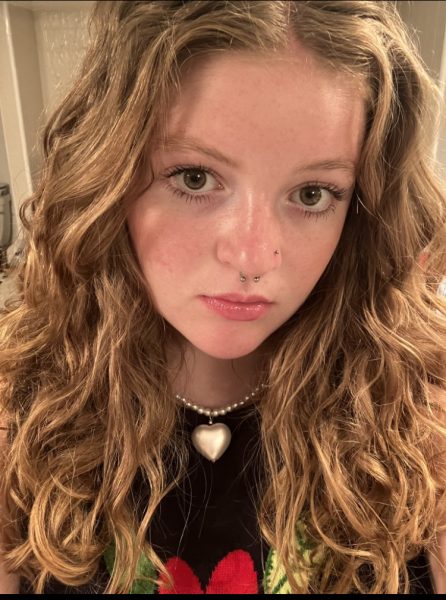Salt Lake City is home to a flourishing local music scene. Big names such as Imagine Dragons, The Brobecks, Neon Trees and The Used got their start here in Utah. These are just some of the successful artists who started their careers playing in Salt Lake’s many small music venues, such as Kilby Court, Urban Lounge, The Complex, Metro Music Hall, Blue Gene’s and more.
In recent years, several of these previously independently-owned music venues have been purchased by larger company S & S Presents. Although S & S Presents is a Utah-based event company, these acquisitions are part of a larger pattern in the music industry, with large companies slowly dominating local scenes. This drives up ticket prices and takes the local aspect out of local music.
The local music scene in Salt Lake is something special. We must not allow our local venues, events and artists to be overtaken by larger companies who cannot possibly connect with local communities in an artistically valuable or productive manner.
Live Nation and Ticketmaster
In 2010, event promoting company Live Nation merged with ticket sales company Ticketmaster to create Live Nation Entertainment. This formed a corporate colossus that controls every aspect of the live event process.
Live Nation manages ticket services, artist management, concert promotion and venue ownership. Today, Live Nation Entertainment controls an estimated 70% of the ticketing and live event venues market, effectively operating as a monopoly that holds unchecked control over prices and market conditions.
This merger created a force so powerful that in May, 30 states joined the Department of Justice in filing an anti-trust lawsuit against Live Nation Entertainment for abusing its dominance in the music industry. The suit claims that Live Nation Entertainment has taken advantage of its market dominance to the detriment of consumers, leaving music fans with a lack of decision-making power.
Connecticut Sen. Richard Blumenthal said, “American consumers deserve fair ticket prices, without hidden fees or predatory charges. And the American public deserves to know how Ticketmaster’s unfair practices may be enabled by its misuse of monopoly power.”
Live Nation now owns more than 265 North American concert venues and the majority of large amphitheaters in the U.S. Artists find themselves trapped with no other choice but to work with Live Nation — a company that is known to have frequent platform failures and unnecessary ticket fees.
Music is a universally loved art form. Everyone should have the ability to experience live music. Unethical monopolization and corporate greed place barriers between consumers and experiences that should be accessible. Concert ticket prices are raising constantly.
In Salt Lake
The Live Nation monopoly has a large impact on live music in Salt Lake. The company owns prominent Salt Lake venues The Depot and Utah First Credit Union Amphitheater.
I spoke with Lyndi Wadsworth, the lead guitarist for local Salt Lake punk band Burning Avenues. She has been heavily involved in the Salt Lake music scene for over a decade as an artist, sound engineer and teacher. She has also worked with various local music programs such as Rock Camp SLC.
Over the past 10 years, Wadsworth has played at nearly every local venue, including The Beehive, Kilby Court, the Underground, The Metro and Urban Lounge. She said she has experienced a noticeable shift in the local music scene since these venues have drifted away from being independently owned and locally run.
She spoke about how these changes have been felt, particularly at Kilby Court.
“That venue is one of the best local all-ages venues and since S & S took over it has been extremely difficult to get a local show booked,” Wadsworth said. “They bring in a lot of awesome shows, but there are so many that it’s hard to get in to do a local show.”
Wadsworth thinks it’s important, both as an artist and a fan, for venues to remain locally owned.
“It helps grow the scene so much. It is easier to get people out to the shows too because they don’t have to pay super high ticket prices or all those service fees,” she said. “It also just grows local business which is always a more welcoming vibe and creates more opportunity for community events.”
“As a concert-goer, sometimes one ticket ends up being the price of two because of the fees,” Wadsworth said. “As a musician, trying to convince people to buy a $20 ticket that ends up costing $30 is a much harder sell.”
Wadsworth also mentioned a key component to this price gouging — it does not result in artists being paid more for their work. A large part of the reason that concert ticket prices are skyrocketing is that streaming services pay artists so little that they must shift to profits from live shows instead of being able to profit from selling their music like artists of the past.
Lead music streaming service Spotify only pays artists an average of $0.003-$0.005 per stream. However, when ticket sales go through third parties like Live Nation, independent artists are oftentimes the last people to get paid.
Independent music has a special place in Salt Lake City. Wadsworth said that the local musicians have a supportive sphere in the valley.
“People that want to get involved in the community use music as a way to do it,” she said.
The unfortunate thing about monopolies such as Live Nation Entertainment is that they are characterized by their unavoidability; anyone who wants to be involved in live music is forced to work with them.
However, Salt Lake City still has many independently owned venues that need business and support to continue thriving in this corporate-dominated market, like The Beehive and Old Cuss.
“Help out the local venues that still exist so we can keep growing and making the scene better,” Wadsworth said. “When you have an opportunity to go support these venues please do it.”



